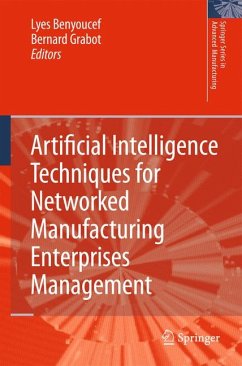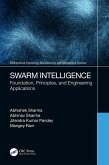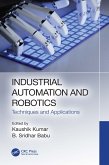Artificial intelligence (AI) techniques have been used to refine decision-making in networked enterprise processes, integrating people, information and products across the network boundaries. Artificial Intelligence Techniques for Networked Manufacturing Enterprises Management addresses prominent concepts and applications of AI technologies in the management of networked manufacturing enterprises.
The aim of this book is to align latest practices, innovation and case studies with academic frameworks and theories, where AI techniques are used efficiently for networked manufacturing enterprises. More specifically, it includes the latest research results and projects at different levels addressing quick-response system, theoretical performance analysis, performance and capability demonstration. The role of emerging AI technologies in the modelling, evaluation and optimisation of networked enterprises' activities at different decision levels is also covered.
Artificial Intelligence Techniques for Networked Manufacturing Enterprises Management is a valuable guide for postgraduates and researchers in industrial engineering, computer science, automation and operations research.
The Springer Series in Advanced Manufacturing publishes the best teaching and reference material to support students, educators andpractitioners in manufacturing technology and management. This international series includes advanced textbooks, research monographs, edited works and conference proceedings covering all subjects in advanced manufacturing. The series focuses on new topics of interest, new treatments of more traditional areas and coverage of the applications of information and communication technology (ICT) in manufacturing.
Dieser Download kann aus rechtlichen Gründen nur mit Rechnungsadresse in A, B, BG, CY, CZ, D, DK, EW, E, FIN, F, GR, HR, H, IRL, I, LT, L, LR, M, NL, PL, P, R, S, SLO, SK ausgeliefert werden.









